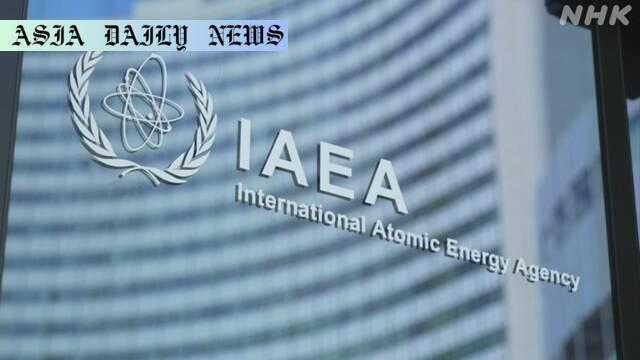IAEA Inspectors: The International Atomic Energy Agency team has left Iran for Vienna, raising concerns over nuclear oversight and safety.
The IAEA inspectors exited Iran without any specified reason.
Iran halted cooperation with the IAEA amidst rising tensions.
Concerns arise over unchecked nuclear activities in Tehran after the inspectors’ withdrawal.
Safety concerns and geopolitical motivations have been highlighted by sources.

IAEA’s Withdrawal Sparks Global Alarm
The International Atomic Energy Agency (IAEA) has officially confirmed that its inspectors have exited Iran, leaving many to question the future of global nuclear oversight. Without a stated explanation for their departure, the exit aligns with rising tensions between Iran and global powers, coupled with allegations from the Iranian administration regarding ulterior motives of the Western nations.
The political landscape surrounding this development is undeniably tense. Iran’s suspension of collaboration with the IAEA, as declared earlier by Iranian President Masoud Pezeshkian, sets a dangerous precedent in international diplomacy and nuclear safety. Tehran’s move, which followed accusations that the agency’s monitoring was an exploitative tool aiding adversarial actions by Israel and the United States, signals a breakdown in trust.
Implications for Global Nuclear Security
The withdrawal of IAEA inspectors comes with significant risks. Analysts foresee the absence of inspectors leading to a critical lack of transparency regarding Iran’s uranium enrichment activities, which remain at alarmingly high levels. According to previous IAEA reports, Iran currently possesses over 400 kilograms of uranium enriched up to 60 percent. However, questions remain over the precise location of the material, a situation exacerbated by reported U.S. attacks on Iranian facilities.
Without external oversight, Tehran could exploit international ambiguity to escalate its nuclear program unchecked. Experts believe this development poses a direct threat not just to regional stability but to global non-proliferation agreements. Safety concerns remain key, as reports claim that IAEA staff were pulled out primarily due to fears for their well-being amidst deteriorating local conditions.
Geopolitical and Strategic Concerns
The development also reshuffles the strategic calculations of nations involved. Western leaders, particularly from the United States, have consistently sought to prevent Tehran from reaching nuclear weapon capability, engaging in multilateral agreements and isolated economic sanctions to curtail the regime’s ambitions. However, the lack of transparency makes assessing such threats increasingly challenging.
The Wall Street Journal recently highlighted the safety angle, quoting sources suggesting the withdrawal stemmed from direct concerns over the well-being of individuals engaged in inspections. Iran’s broader rejection of international scrutiny signals a shift in strategy, perhaps aiming to buy breathing space as it recalibrates its geopolitical objectives amidst intensifying hostilities.
The Path Forward for Diplomatic Engagement
In response to the IAEA’s withdrawal, it becomes imperative for global powers to explore alternative ways to maintain oversight of Iran’s nuclear programs. Dialogue remains critical. While the environment has grown increasingly polarized, successful diplomacy hinges on mutual de-escalation and recognizing both safety and strategic concerns of all stakeholders.
Striking the balance between sanctions and incentives while encouraging transparent reforms in Iran’s nuclear activities could serve as potential solutions, albeit requiring coordinated efforts from key entities like the United Nations and major global players. Consistent advocacy for the resumption of IAEA collaborations holds hope to mitigate the precariousness of the current situation.



Commentary
The Impact of IAEA’s Withdrawal
The departure of IAEA inspectors from Iran could mark a pivotal juncture in the history of global nuclear regulation. At face value, it showcases a growing divide between Iran and the international community—a divide that, if left unaddressed, could have wide-reaching implications. Nuclear oversight is not just a technical process; it is a cornerstone of trust in international relations.
The Ripple Effects of Unchecked Actions
One of the greater concerns in this scenario is the potential for unchecked nuclear development within Tehran’s borders. Historically, the very existence of monitoring agencies like the IAEA has served as a deterrence mechanism. Removing such oversight creates a vacuum, which could embolden actions with long-term implications for both regional and global players.
A Call for Renewed International Dialogue
This is a moment that demands leadership and constructive dialogue on all sides. While Iran’s grievances about the IAEA’s alleged misuse cannot be ignored, they must be addressed within the framework of international law and cooperation. Turning away from oversight opens the door to greater risks. Likewise, the global community should explore means to prioritize safety while maintaining accountability.
In the larger scheme of things, the inspectors’ withdrawal is a wake-up call, urging stakeholders to rationally reevaluate their strategies. Failure to act now could set a precarious precedent for monitoring efforts worldwide. This development demands a level-headed, cooperative approach to ensure both global safety and mutual respect among nations.